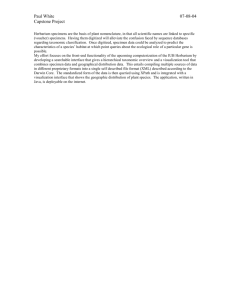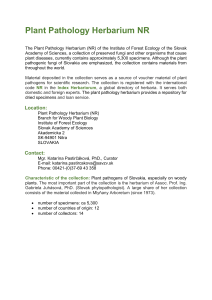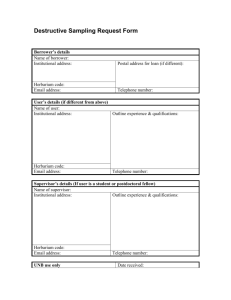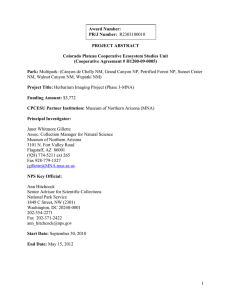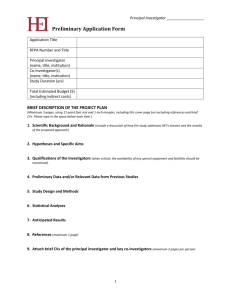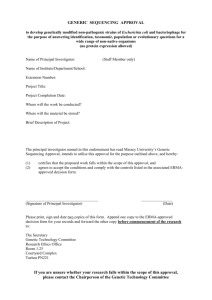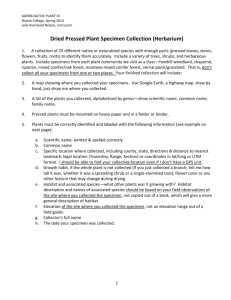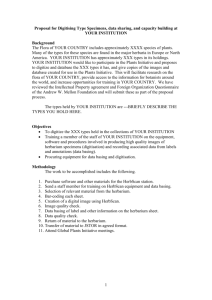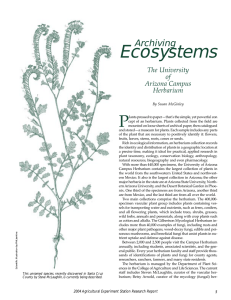ARIZ Herbarium Policies Destructive Sampling from Herbarium Specimens
advertisement
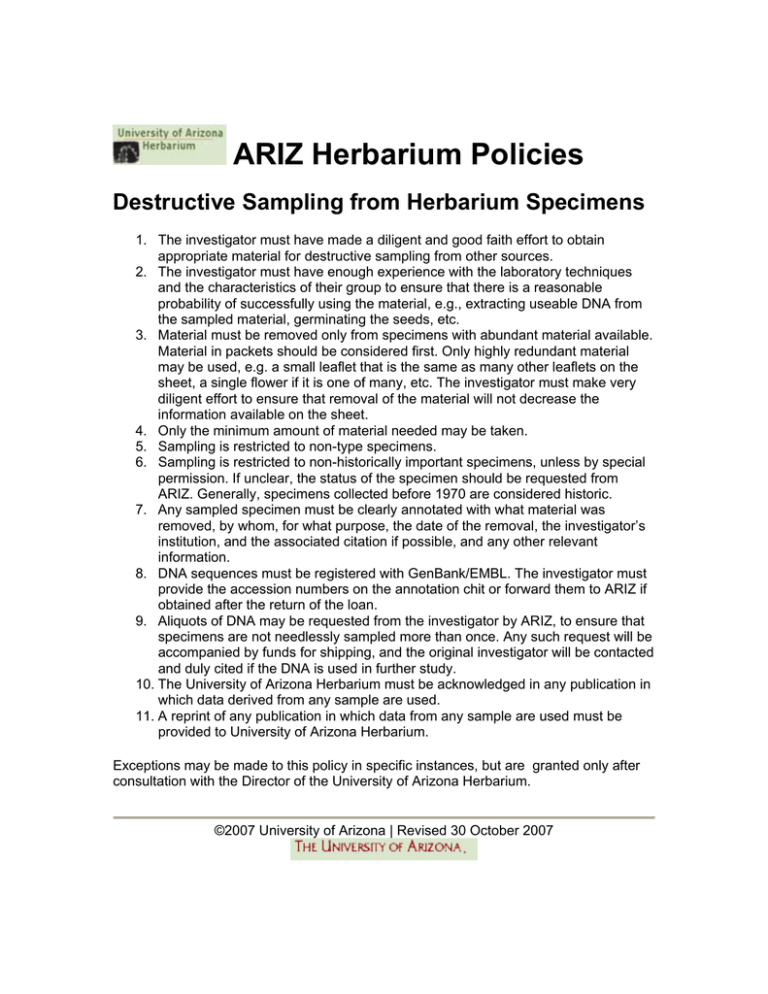
ARIZ Herbarium Policies Destructive Sampling from Herbarium Specimens 1. The investigator must have made a diligent and good faith effort to obtain appropriate material for destructive sampling from other sources. 2. The investigator must have enough experience with the laboratory techniques and the characteristics of their group to ensure that there is a reasonable probability of successfully using the material, e.g., extracting useable DNA from the sampled material, germinating the seeds, etc. 3. Material must be removed only from specimens with abundant material available. Material in packets should be considered first. Only highly redundant material may be used, e.g. a small leaflet that is the same as many other leaflets on the sheet, a single flower if it is one of many, etc. The investigator must make very diligent effort to ensure that removal of the material will not decrease the information available on the sheet. 4. Only the minimum amount of material needed may be taken. 5. Sampling is restricted to non-type specimens. 6. Sampling is restricted to non-historically important specimens, unless by special permission. If unclear, the status of the specimen should be requested from ARIZ. Generally, specimens collected before 1970 are considered historic. 7. Any sampled specimen must be clearly annotated with what material was removed, by whom, for what purpose, the date of the removal, the investigator’s institution, and the associated citation if possible, and any other relevant information. 8. DNA sequences must be registered with GenBank/EMBL. The investigator must provide the accession numbers on the annotation chit or forward them to ARIZ if obtained after the return of the loan. 9. Aliquots of DNA may be requested from the investigator by ARIZ, to ensure that specimens are not needlessly sampled more than once. Any such request will be accompanied by funds for shipping, and the original investigator will be contacted and duly cited if the DNA is used in further study. 10. The University of Arizona Herbarium must be acknowledged in any publication in which data derived from any sample are used. 11. A reprint of any publication in which data from any sample are used must be provided to University of Arizona Herbarium. Exceptions may be made to this policy in specific instances, but are granted only after consultation with the Director of the University of Arizona Herbarium. ©2007 University of Arizona | Revised 30 October 2007
